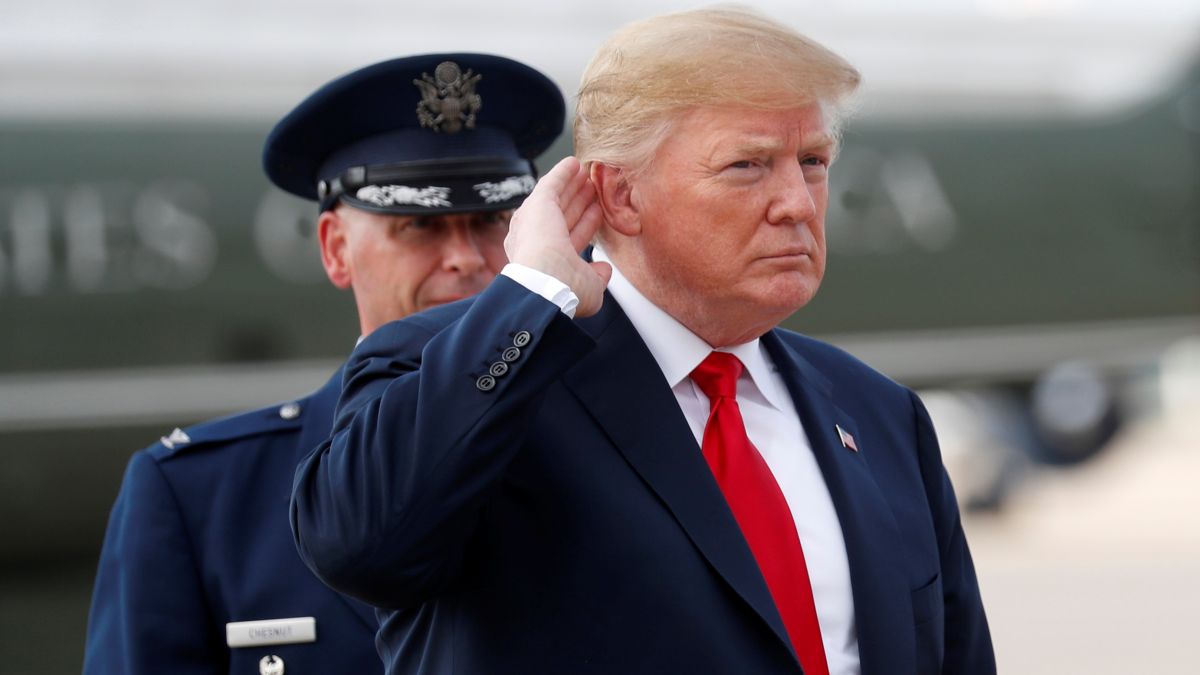US President Donald Trump boasts about his deal making ability. His ghost-written book, The Art of the Deal , published in 1987, became a bestseller and earned him fame in the US and beyond. Trump’s essentially real-estate business experience has led him to consider himself as a master deal maker in whatever he undertakes.
What Trump’s view on deal making ignores is that the considerations for deal making cannot be the same in all areas of life. Hence, there is no one-size-fits-all in deal making. This basic principle has escaped Trump even as he transited from business to the pinnacle of global political power.

Thus, whatever may have been Trump’s skills as a dealmaker in the world of business and commerce, especially in his chosen field of real estate, in the game of global diplomacy he has proved himself, till now, to use an American expression, nothing but a lousy deal maker and loud mouthed at that. This is especially when it comes to China, his major challenge. He may take pride that smaller and vulnerable states are queuing up to suck up to him after his imposition of reciprocal tariffs but does brow-beating them eventually really matter to the US when the real game is with China? Trump and his cronies do not understand that relations between the great powers embrace all areas of life, beginning with state security.
They therefore involve world order and issues of international peace and security. The challenge that an established power faces from a rising power which is disregarding some of the rules of the current world order cannot be met by throwing the world into turmoil. Certainly, such a challenge cannot be met through the application of the principles of deal making in the business world.
Setting maximalist positions and then climbing down from them is part of business deal making. They can be part of some bilateral and even multilateral diplomatic negotiations. But when the world’s pre-eminent power whose share of the global GDP is roughly 26 per cent begins to adopt maximalist universal positions and then undertakes sudden twists and turns it throws the world into a kelter.
This is what Trump has done since the beginning of this month when he imposed reciprocal tariffs on a majority of countries. Later, he suspended them for 90 days but maintained a base tariff rate of 10 per cent on all imports from these countries. However, Trump did not exempt China from this moratorium.
Instead, with China he went the other way. He increased tariffs on all Chinese exports to the US to around 145 per cent. Within a few days, however, Trump resiled from this position.
He exempted, according to one media report, ’20 product types accounting for 23 per cent of US imports from China’. These products were smart phones, computers, semiconductors, among other electronic products. Clearly, the major US companies which have set up manufacturing bases in China for these products warned him that their products would become far more expensive and even unaffordable in the US.
Obviously, Trump had not asked his concerned departments and experts to assess the fall out of the positions he was taking on reciprocal tariffs. As I write these lines Trump has indicated that he will impose some tariffs on semi-conductors, perhaps this week, because he wishes that chips and semi-conductors should be manufactured in the US. He has not made a similar indication on smart phones and computers.
All this is adding to the confusion. As already noted, climbing down from maximalist positions and flip flops may be part of business deal making but doing so in the game of nations can be extremely dangerous because it sends out negative signals to the international community about the staying power even of powerful states. This results in a loss of credibility.
That naturally goes to the advantage of the adversary. This is one reason why leaders of great powers proceed cautiously. Once they take decisions, they do not easily resile from them.
Contrary to the conventional approach of political leaders of great powers Trump has no inhibition in flip-flopping. Trump plays from a different rule book where flip-flopping has merit for it keeps the adversary guessing. However, in an era of global supply chains there has to be an emphasis on consistent and predictable behaviour.
Here, an analogy can be drawn from the world of geo-strategy. With the coming of the nuclear age those states which possessed nuclear weapons had to conduct themselves in a predictable manner. They could not afford sending out confusing signals to other states with nuclear weapons because that could lead to a global catastrophe of a war where nuclear weapons were used.
The confused signals that Trump is sending out has already led to enormous global economic and commercial dislocation. It can also lead to a global economic recession. Thus, just as nuclear powers have to behave responsibly and predictably, a country whose share of the global GDP is 26 per cent has to do so too in the economic and commercial areas.
Trump’s negotiating style derived from business deal making does not take this into account. China has been the only country which has decided to fight Trump’s reciprocal tariffs. It has increased tariffs on US imports.
More importantly it has banned the export of certain critical components of the electronic industry. These include some rare earths and magnets made from rare earths. At the same time President Xi Jinping is assuring Asian countries in particular that China will ensure ‘continuity and stability’.
Xi Jinping is touring South-East countries such as Vietnam, Malaysia and Cambodia which have all been subjected to reciprocal tariffs. China looks to its own national interest and its Belt and Road Initiative (BRI) is exploitative. Some states such as Sri Lanka have paid a heavy price for the loans that they took under the BRI.
They have had to lease out strategically important locations to China because of their inability to service the loans. However, China is playing the international game without resorting to bombastic and sweeping Trump like statements. Its negotiating style is contrary to Trumpian flip flops.
Trump is undoubtedly convinced that he is the saviour who will make America great Again. He is also certain that his methods in politics and diplomacy are correct for America. He will continue to pursue them and the world will continue to suffer with each country attempting to insulate itself from Trump caused chaos and turmoil.
And, above all, China will seek to present itself as a responsible state whose rise the US cannot stop. Is this in US’s interest? The writer is a former Indian diplomat who served as India’s Ambassador to Afghanistan and Myanmar, and as secretary, the Ministry of External Affairs. Views expressed in the above piece are personal and solely those of the author.
They do not necessarily reflect Firstpost’s views..
Politics

Why Trump can’t conduct his diplomacy like a real estate tzar

There is no one-size-fits-all in deal making. This basic principle has escaped Donald Trump even as he transited from business to the pinnacle of global political power















